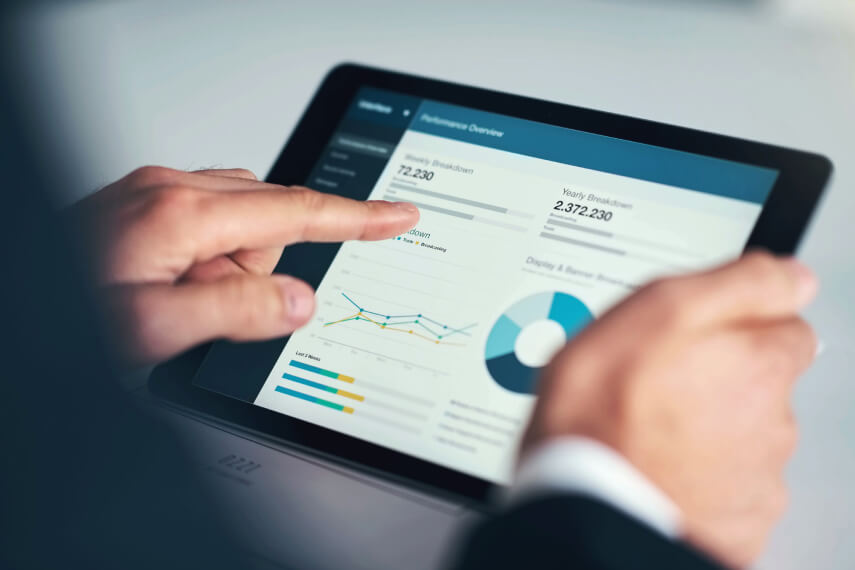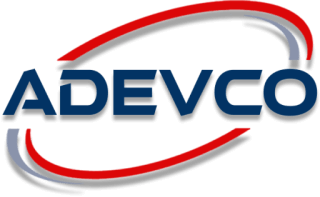Accounts Payable
At ADEVCO, we specialize in developing Accounts Payable (AP) solutions that streamline and automate the management of a company’s outgoing payments. Our custom solutions help organizations efficiently handle invoices, vendor payments, and financial transactions, ensuring accuracy, compliance, and improved cash flow management. By automating the AP process, we help businesses reduce manual errors, accelerate payment cycles, and strengthen supplier relationships. Whether it’s integrating payment systems or enhancing financial reporting, ADEVCO’s solutions deliver the tools needed to improve operational efficiency and ensure smooth financial transactions across the board. Key features include:
- Automated Invoice Processing
- Real-Time Payment Tracking
- Fraud Detection and Compliance Monitoring
- Enhanced Reporting and Analytics

Accounts Receivable
ADEVCO specializes in developing Accounts Receivable (AR) solutions that help organizations efficiently manage and streamline the collection of incoming payments. Our custom solutions ensure the timely and accurate processing of invoices, improving cash flow, and enhancing customer relationships. By automating tasks like invoice generation, payment tracking, and reconciliation, we help businesses reduce errors, accelerate collections, and mitigate financial risks. ADEVCO’s AR solutions integrate seamlessly with existing systems, providing businesses with the tools they need to optimize their revenue cycle and maintain strong financial health. Key features include:
- Automated Invoicing and Billing
- Real-Time Payment Tracking
- Credit Risk Assessment and Management
- Enhanced Reporting and Analytics

General Ledger
ADEVCO specializes in developing General Ledger (GL) solutions that provide organizations with a comprehensive view of their financial transactions. Our custom solutions streamline the process of recording, managing, and consolidating financial data, ensuring accurate and up-to-date reporting. By automating key tasks such as account reconciliation, journal entries, and financial statement generation, our GL solutions improve financial accuracy and efficiency. ADEVCO’s General Ledger systems also ensure compliance with regulatory standards, providing businesses with the insights needed for strategic decision-making and overall financial health. With robust integration capabilities, our GL solutions help organizations stay organized, compliant, and informed across all their financial operations. Key features include:
- Centralized Financial Data Management
- Real-Time Transaction Recording
- Automated Reconciliation Processes
- Detailed Financial Reporting and Analysis

Payroll
ADEVCO specializes in Payroll Solutions designed to ensure accurate and timely employee compensation. Our custom software streamlines payroll processing, handling salary payments, tax withholdings, and compliance with labor laws. We focus on providing efficient systems that reduce errors and improve employee satisfaction while meeting regulatory requirements. With ADEVCO’s payroll solutions, businesses can confidently manage their workforce’s compensation needs. Key features include:
- Automated Salary Calculations
- Tax Filing and Compliance Management
- Time and Attendance Tracking
- Employee Self-Service Portal

Purchase Order Systems
ADEVCO develops custom Purchase Order Systems that automate order creation, tracking, and approval workflows. These systems help businesses manage supplier relationships, control expenses, and maintain accurate inventory levels. Our solutions streamline procurement, reducing manual processes and improving efficiency. Key features include:
- Automated Order Generation and Approvals
- Real-Time Order Tracking
- Budget and Spend Management
- Supplier and Inventory Management

Billing / Invoicing
ADEVCO creates custom Billing and Invoicing Systems that simplify the creation, sending, and tracking of invoices. Our systems ensure accurate and timely payments, maintaining cash flow and improving customer satisfaction. By automating processes, we reduce manual errors and enhance operational efficiency. Key features include:
- Automated Invoice Creation and Delivery
- Real-Time Payment Tracking
- Customizable Invoice Templates
- Integration with Payment Gateways

Financial Reporting
ADEVCO specializes in developing Financial Reporting Systems that provide clear, timely insights into a company’s financial performance. Our custom solutions enable informed decision-making, ensure compliance with industry standards, and support strategic planning by automating and streamlining financial reporting processes. Key features include:
- Automated Report Generation
- Real-Time Data Analysis
- Compliance and Regulatory Reporting
- Customizable Financial Dashboards

Asset Management
ADEVCO specializes in developing Asset Management Systems that enable organizations to efficiently track, maintain, and optimize assets throughout their lifecycle. Our solutions help businesses maximize asset utilization, minimize downtime, and allocate resources effectively, ensuring smoother operations and greater cost savings. By providing real-time tracking and comprehensive reporting, our systems improve decision-making and contribute to long-term operational success. Key features include:
- Real-Time Asset Tracking
- Lifecycle Management and Maintenance Scheduling
- Depreciation and Valuation Tracking
- Reporting and Analytics

Budgeting and Forecasting
ADEVCO develops Budgeting and Forecasting Systems that help organizations predict revenue, expenses, and cash flow with precision. Our solutions empower businesses to set clear financial goals, enhance decision-making, and ensure long-term financial stability. By integrating real-time data and advanced analytics, our systems provide actionable insights for more accurate planning and improved financial outcomes. With ADEVCO’s customized tools, businesses can confidently navigate their financial future. Key features include:
- Automated Budget Creation and Adjustments
- Real-Time Financial Forecasting
- Variance Analysis and Reporting
- Scenario Planning and Sensitivity Analysis

 News: ADEVCO Develops Fully HIPAA-Compliant Psychiatric Care EMR in Under Four Months.
News: ADEVCO Develops Fully HIPAA-Compliant Psychiatric Care EMR in Under Four Months.

